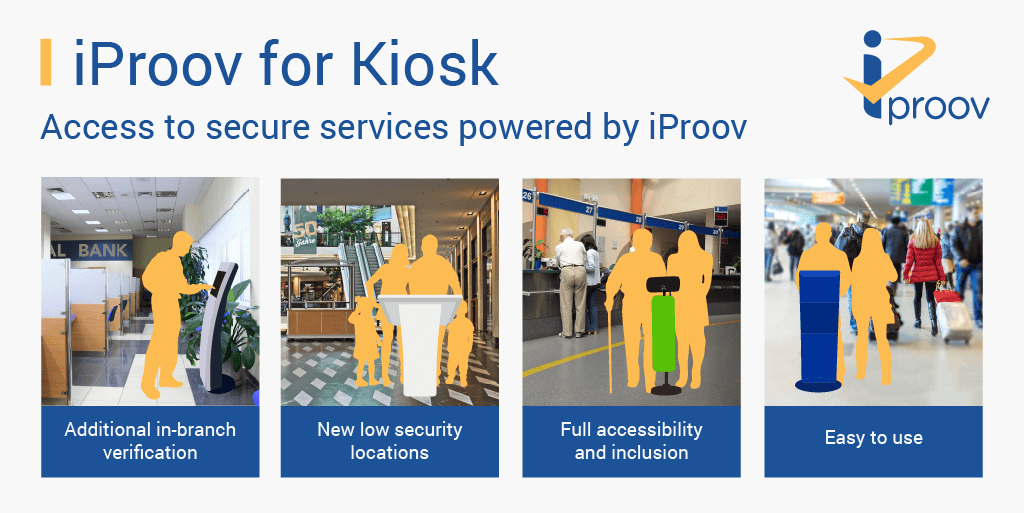February 13, 2020
iProov, a leading provider of biometric authentication technology, today announces that its Verifier product is now available to organizations needing to verify customer identities in a host of new physical environments, including kiosks.
iProov has revolutionized the process of remote identity authentication, enabling banks and governments to authenticate customers and citizens via mobile or online app for access to secure services. This latest innovation enables organizations to use the same technology to offer secure, high-value transactions in low-security branches and other physical locations, such as kiosks or unmanned offices.
The benefits include:
- Accessibility and inclusion – the new service allows organizations to offer secure services to citizens and customers without access to a smartphone
- Low-security locations – organizations can make secure services available in additional locations, such as shopping centres or travel hubs
- Additional verification in branches – for high-value transactions, or where staff may be vulnerable to coercion, biometric authentication provides an extra layer of security
- Ease of use – users stand stationary in front of a kiosk screen and witness the authentication process take place before their eyes, with their identity verified within 30 seconds
Enterprises that will benefit from both mobile and fixed terminal authentication include banks (for Know Your Customer procedures and service access), governments (for benefits and immigration enrolment), and travel providers (e.g. airlines, international train services, and car hire).
Building on the launch of Palm Verifier at FinovateEurope in 2019, which won Best in Show, the integration of iProov into fixed non-personal hardware will adhere to the same conformance standards of genuine presence assurance that saw the company endorsed by the UK National Physical Laboratory in 2018.
Andrew Bud, Founder and CEO of iProov said: “Over 2.5 million people ‘iProoved’ last year on their mobiles or desktop computers. That same secure, effortless authentication is now possible on kiosks and fixed-format screens. Our customers can offer greater accessibility and inclusion while pursuing opportunities for delivering services in new environments.”
“It’s incredibly important for users to feel involved in the authentication process, and we know they appreciate seeing it unfold on-screen. It reassures them that appropriate care is being taken to ensure they are who they say they are. We care deeply about user experience and have overcome some interesting challenges to replicate this on kiosks. It’s a fantastic piece of innovation from our team.”
